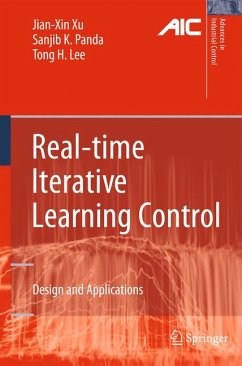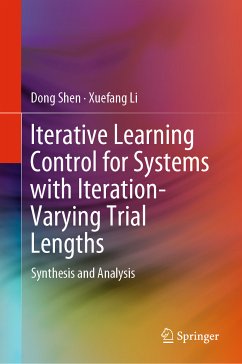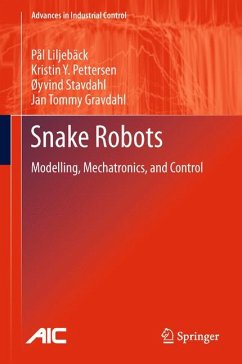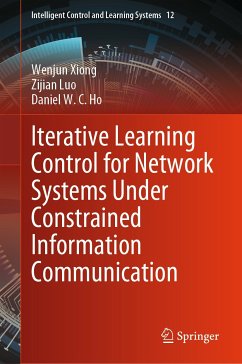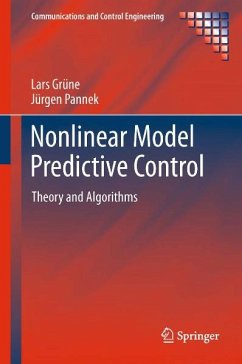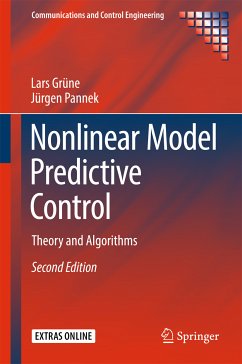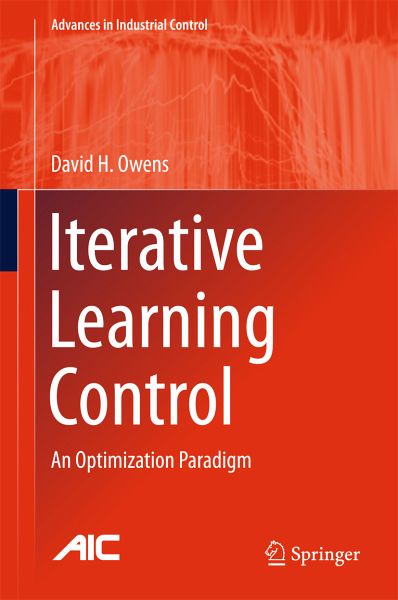
Iterative Learning Control (eBook, PDF)
An Optimization Paradigm
Versandkostenfrei!
Sofort per Download lieferbar
96,95 €
inkl. MwSt.
Weitere Ausgaben:

PAYBACK Punkte
48 °P sammeln!
This book develops a coherent and quite general theoretical approach to algorithm design for iterative learning control based on the use of operator representations and quadratic optimization concepts including the related ideas of inverse model control and gradient-based design.Using detailed examples taken from linear, discrete and continuous-time systems, the author gives the reader access to theories based on either signal or parameter optimization. Although the two approaches are shown to be related in a formal mathematical sense, the text presents them separately as their relevant algori...
This book develops a coherent and quite general theoretical approach to algorithm design for iterative learning control based on the use of operator representations and quadratic optimization concepts including the related ideas of inverse model control and gradient-based design.
Using detailed examples taken from linear, discrete and continuous-time systems, the author gives the reader access to theories based on either signal or parameter optimization. Although the two approaches are shown to be related in a formal mathematical sense, the text presents them separately as their relevant algorithm design issues are distinct and give rise to different performance capabilities.
Together with algorithm design, the text demonstrates the underlying robustness of the paradigm and also includes new control laws that are capable of incorporating input and output constraints, enable the algorithm to reconfigure systematically in order to meet the requirements of different reference and auxiliary signals and also to support new properties such as spectral annihilation.
Iterative Learning Control will interest academics and graduate students working in control who will find it a useful reference to the current status of a powerful and increasingly popular method of control. The depth of background theory and links to practical systems will be of use to engineers responsible for precision repetitive processes.
Using detailed examples taken from linear, discrete and continuous-time systems, the author gives the reader access to theories based on either signal or parameter optimization. Although the two approaches are shown to be related in a formal mathematical sense, the text presents them separately as their relevant algorithm design issues are distinct and give rise to different performance capabilities.
Together with algorithm design, the text demonstrates the underlying robustness of the paradigm and also includes new control laws that are capable of incorporating input and output constraints, enable the algorithm to reconfigure systematically in order to meet the requirements of different reference and auxiliary signals and also to support new properties such as spectral annihilation.
Iterative Learning Control will interest academics and graduate students working in control who will find it a useful reference to the current status of a powerful and increasingly popular method of control. The depth of background theory and links to practical systems will be of use to engineers responsible for precision repetitive processes.
Dieser Download kann aus rechtlichen Gründen nur mit Rechnungsadresse in A, B, BG, CY, CZ, D, DK, EW, E, FIN, F, GR, HR, H, IRL, I, LT, L, LR, M, NL, PL, P, R, S, SLO, SK ausgeliefert werden.



